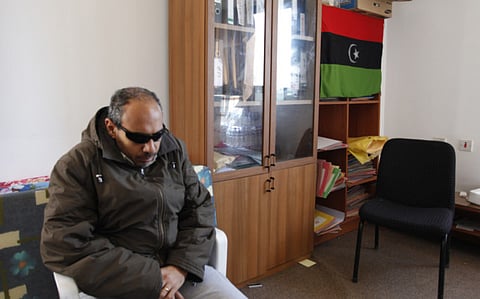Copts turn to League over Libya arrests
100 Copts held in Benghazi for alleged proselytism

Cairo: Egypt’s Christians have urged the Arab League to interfere to secure the release of around 100 Copts arrested in Libya for allegedly promoting Christianity, according to a human rights advocate.
“I wrote to the head of the Arab League Nabeel Al Arabi seeking his help in releasing them because Libya is a member of his organization,” said Najib Gabriel, a Coptic chairman of the non-governmental group, the Egyptian Human Rights Union Organisation.
“The Egyptian Foreign Ministry has failed to do something for those citizens being held in Libya,” he told the opposition newspaper Al Tahrir in remarks published Friday. There was no immediate comment from the Foreign Ministry.
The detained Copts were seen with shaved heads in a video while being kept in what activists said was a warehouse in the eastern Libyan city of Benghazi. The video also showed bearded persons speaking in a Libyan accent accusing the detainees of spreading Christianity in mainly Muslim Benghazi as books on Christianity were displayed on an office.
“Their detention is illegal and violates the international law, which knows no charge as proselytism,” said Gabriel. “When arrested, they were not engaged in proselytism. They were just having pictures of the Christ and the (late Coptic) Pope Shenouda, things always carried by Christians to invoke blessings.”
Gabriel threatened to turn to the UN Human Rights Council if the Arab League failed to secure the detainees’ release.
Coptic activists also said they would hold a protest outside the UN media office in Cairo on Sunday.
Christians make up around 10 per cent of Egypt’s 84 million people. They have voiced fears about marginalisation since Islamists took power in Egypt after a 2011 revolt toppled former strongman Hosni Mubarak.
Sign up for the Daily Briefing
Get the latest news and updates straight to your inbox



